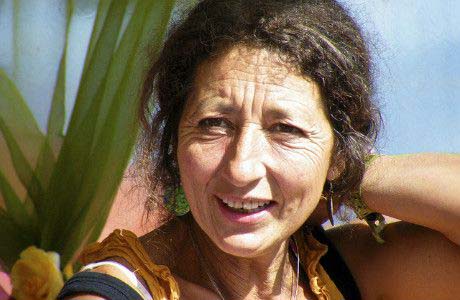False Self vs. True Self: 5 Second Half of Life Realities A

As people move through the middle of life, the false self vs. true self distinction becomes more and more meaningful.

The false self vs. true self distinction is always important — and certainly always important in /a-midlife-transition. Yet, as one moves through life, the question of “how can I be my authentic self?” starts to grow more and more urgent.
Now, why is that? Probably for many reasons, but one fundamentally compelling one is that there seems to be something deep within us that is convinced that a key part of the reason that we exist is to express who and what we most fundamentally are.
To help us understand this, the archetypal psychologist James Hillman quotes the ancient Greek pre-Socratic philosopher Heraclitus:
“ETHOS ANTHROPOI DAIMON”
Well, what does that mean?
False Self vs. True Self: the Real Goods
The true self begins to appear very early in our lives, as we experience our bodily life and begin to express ourselves in our early life world. We simply are, and we express ourselves in a way that flows spontaneously from the core of our being.

However, the child can easily absorb the message from the world that their spontaneous self is not very welcome. We can get the message that the family or other environments are requiring us to “edit” and “censor” ourselves and our genuine reactions. As Winnicott pointed out, when that happens, the infant’s spontaneity is in danger of being encroached on by the need for compliance with other’s wishes and expectations.
These expectations can become so powerful that they supercede our original genuine and spontaneous sense of self, and flood the self with anxiety.
The individual can be left with a sense of inner emptiness within an outer social shell that appears independent and self motivated. This is the false self to which Winnicott and others refer. Jungians often refer to this as the individual being identified with his or her persona.
We Often Don’t Know The True Self
It can often be that, by the time and individual reaches the middle of life’s journey, they have been reflexively meeting the social expectations of others for so long, and so completely that they can no longer distinguish what is truly part of the self, from the false self or persona they have constructed to meet the demands of the world. This would be a situation of strong identification with the persona.
Often, when this situation occurs, it is reflected in the appearance of shadow figures in the dream life of the individual. Dark or aggressive individuals may appear. They may be pounding on the door, they may slip in as burglars, or they may arrive in a myriad of other ways. We know that when they do, there are repressed or dissociated parts of the self, often having to do with strong feelings, that are trying to make themselves part of conscious awareness.
Example: A female clergyperson, long conditioned to meet the expectations of parishioners to be “nice” and “unselfish”, has a long series of dreams where she is locked in a church, and outside, bikers and thugs are breaking in the doors, and smashing the stained glass, trying to get in. Ongoing /a-midlife-transition work allowed her to explore and stand up for her own desires and needs.
In the second part of this post, we’ll be exploring ways that /a-midlife-transition opens up the consciousness of false self vs. true self, and facilitates the journey into the undiscovered self, especially through symbols and images of the Self.
Brian Collinson, Registered Psychotherapist & Jungian Analyst
[cta]
PHOTOS: 
 © kate hiscock ; Afshin Darian ; Miran Rijavec
© kate hiscock ; Afshin Darian ; Miran Rijavec
© 2015 Brian Collinson, 2238 Constance Drive Oakville, Ontario (near Mississauga)

Dawn Guidry Montz
For the better part of my life I have felt like Clarissa Pinkola Estes’ “mistaken zygote”, only to reach “the mid-point of my life” (a la Dante) much in the same “state-of-mind”. Dr. COLLINSON, your “False Self/True Self, parts A & B” are a TREMENDOUS GUIDE in helping me to REMEMBER my past so that I may RE-MEMBER my self in the present. THANK YOU!
Brian C
Thank you for your comment, Dawn. It’s very important to get to those elements of the true self. And, as you suggest, this becomes of very great importance as we reach midlife. All the very best on your journey!